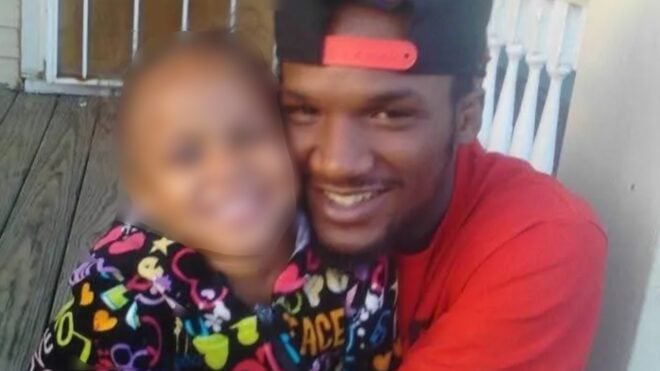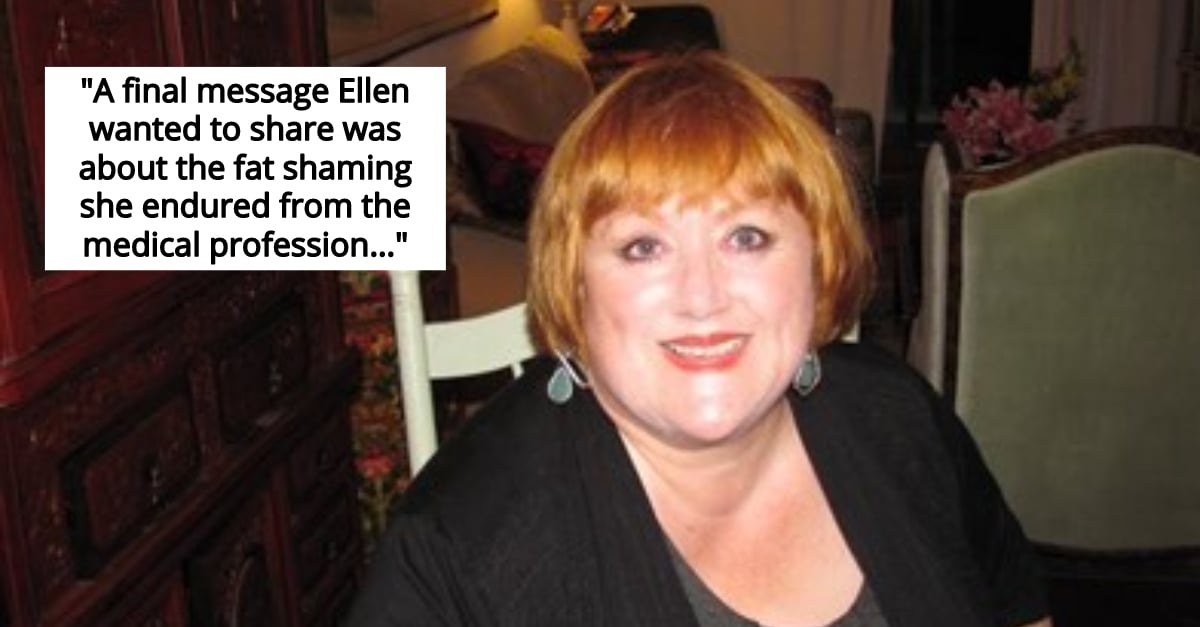
Our bodies are incredible machines. The things they can do are endless, as are the messages they can communicate to us. There are times when there's nothing noticeably wrong with you, but you can feel it. You simply know.
It's important to trust your instincts in these situations and to follow up with trusted physicians and find a solution for the ailment. But what if you went to your trusted physician and you were simply brushed off? What if there was no reality where you could truly trust a physician? This is the reality facing many overweight men and women who seek medical attention, and one woman felt it was her duty to draw attention to this aspect of fat-shaming that few talk about.
Ellen Maud Bennett passed away from cancer at the age of 64 on May 11. As her dying wish, she had a message to get out to other people who are overweight about how they are treated and what they can do about it to look out for themselves. As Ellen's obituary has spread, so has attention to what a problem this is for countless people.

According to her obituary on Legacy.com, Ellen enjoyed a career in theater, television, and film. She was a chipper, stylish woman who enjoyed life.
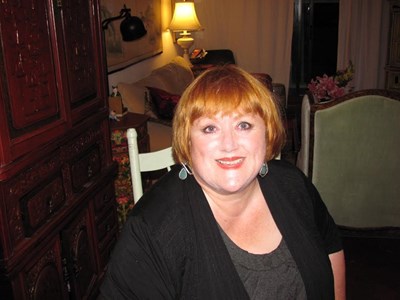
Unfortunately, she was diagnosed with stage 4, inoperable cancer and given just days to live.
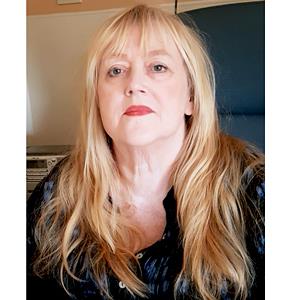
Even at the end, Ellen had a wonderful sense of humor.
She chose the above photo for her obituary, taken just days before she passed. The obituary states, "She chose [this photo] for her obituary because as she said, 'I look so good for someone almost dead!'"

Ellen's final message was a powerful one to people who find themselves discriminated against and ignored as a result of their size.
"A final message Ellen wanted to share was about the fat-shaming she endured from the medical profession," reads her obituary.

"Over the past few years of feeling unwell, she sought out medical intervention and no one offered any support or suggestions beyond weight loss," it continues.

"Ellen's dying wish was that women of size make her death matter by advocating strongly for their health and not accepting that fat is the only relevant health issue."
Ellen's statement resonated with thousands all over the world as her message spread.
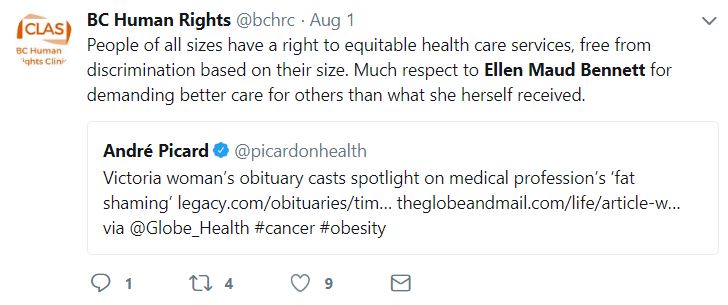
Her decision to speak on this issue started a conversation.

The problem that many overweight people encounter is that medical professionals suggest weight loss as the first course of action, regardless of the origin of the problem.

As a result, potentially preventable situations like Ellen's death happen, and that just shouldn't be so.

Many people who experienced this sort of discrimination in their lives had stories to tell.
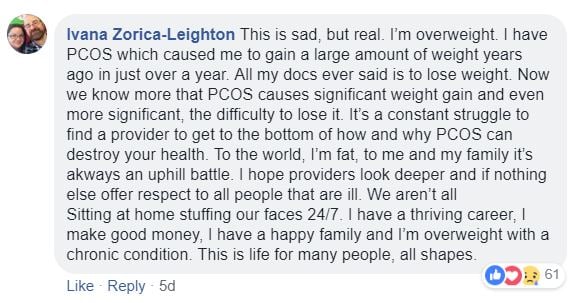
Some of the conditions that were present caused people to gain weight. Without treating the underlying condition, people can't just simply "diet and exercise" their way to good health.
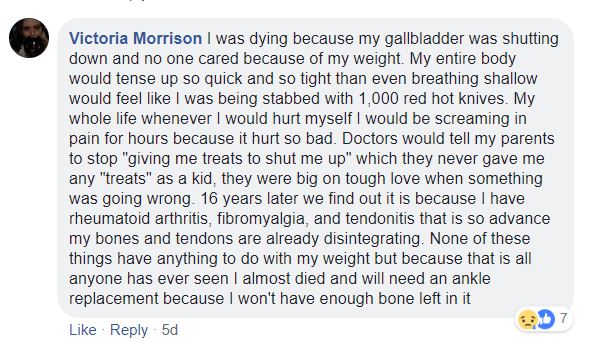
For some people, this can be a matter of life or death. Oftentimes when visiting the doctor, they go into the situation feeling like no one is listening, which is tragic and probably causes a lot of psychological damage and stress on its own.
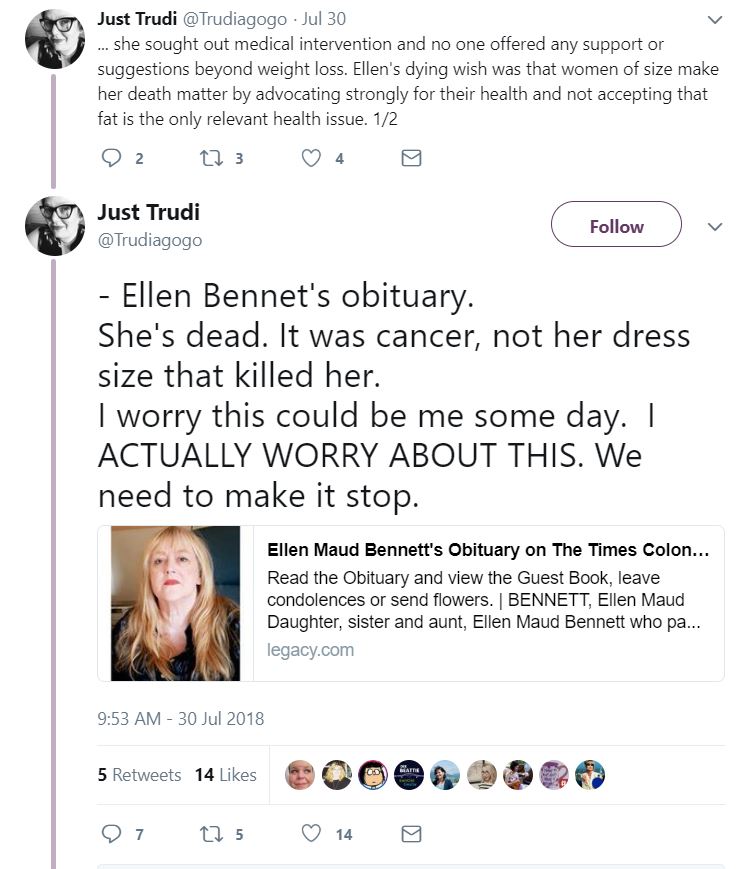
While Ellen's story brings attention to the problem, for those who find themselves in a similar situation to her, it also brings concern. At any point in time, they could find themselves on the receiving end of that treatment, and it could cost them their lives.

While Ellen's message of advocacy is important for overweight patients to hear, it's also important for the medical community to recognize where it's failing patients and costing lives — and to fix itself.
We hope that Ellen's message will inspire change on all sides of this conversation. The beginning of a dialogue where the public understands the various roadblocks to getting help will only stand to save lives.

